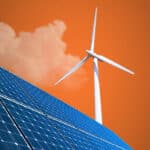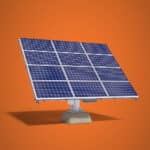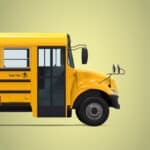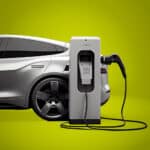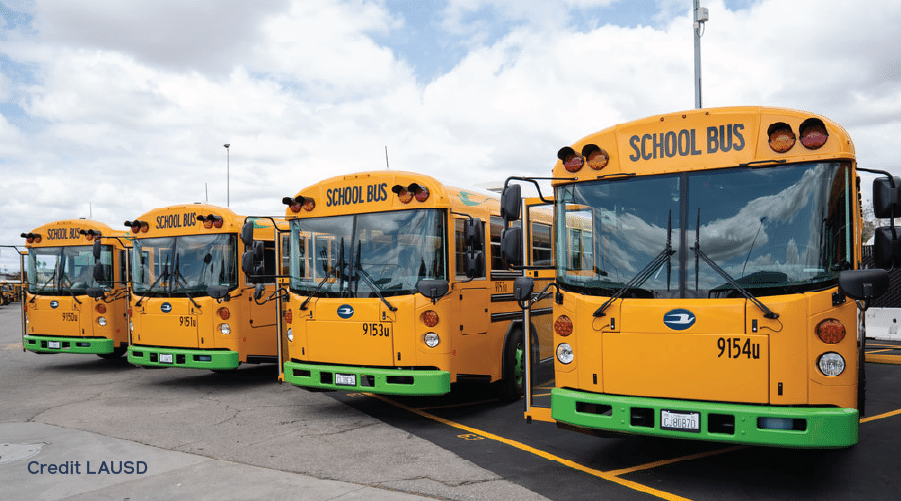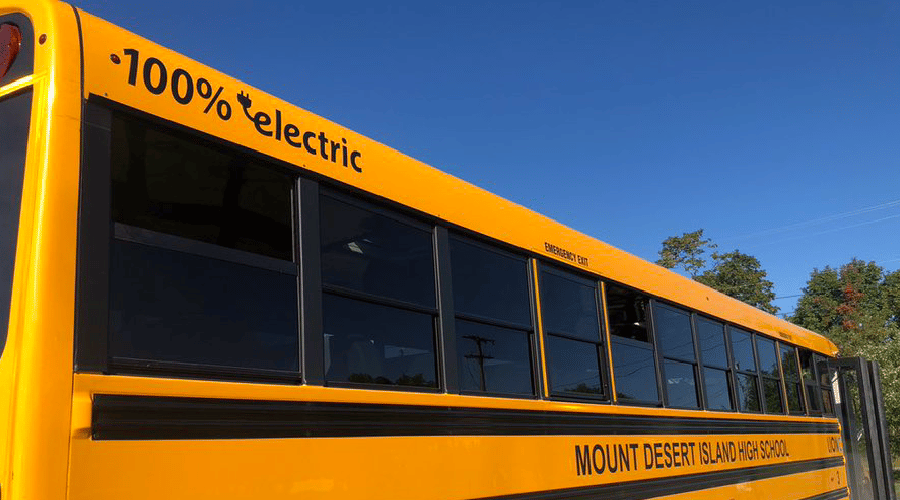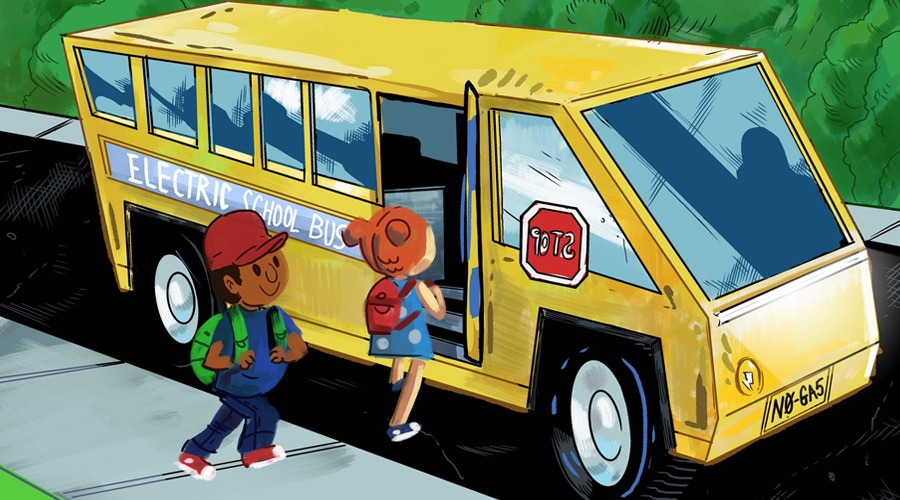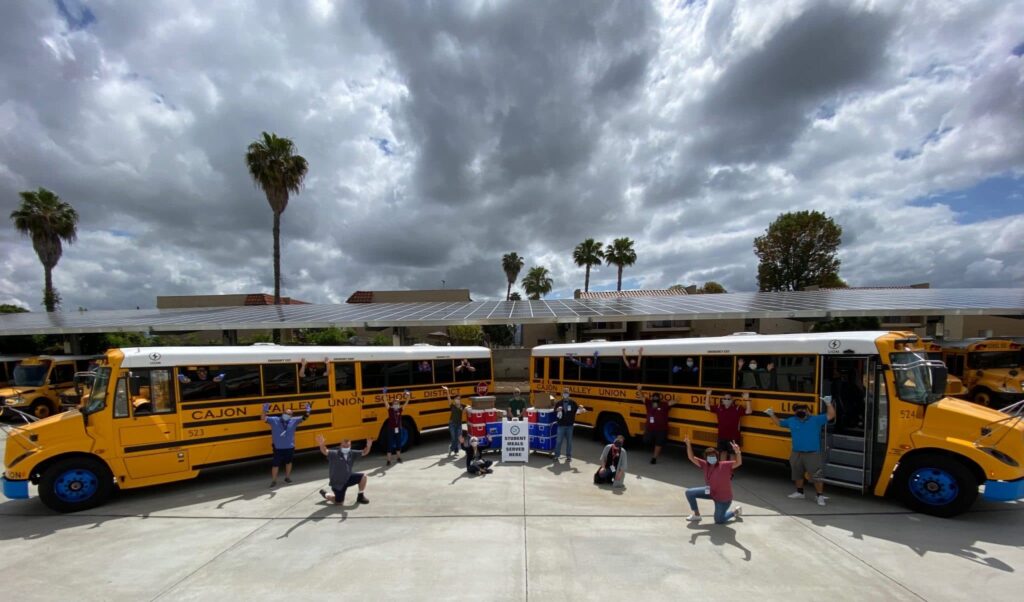As the second largest school district in the United States serving nearly half a million students, Los Angeles Unified School District (LAUSD) is leading the K-12 education sector in electrifying its vehicle fleets. In 2019, LAUSD enacted a resolution for the district to transition its operations to 100% clean and renewable energy, including transportation, heating, ventilation, and cooking operations, by 2040.
Today, LAUSD has 23 electric school buses (ESB) deployed and plans to purchase an additional 180 ESBs and fully electrify its Sun Valley Bus Yard by 2026, which will reduce the district’s carbon emissions by 780,000 tons and reduce its maintenance costs by $10,000 each year.
We talked with Daniel Kang, Director of Transportation at LAUSD, who is leading the charge at the district to electrify its vehicle fleets. He spoke with us about what it means to be a trailblazer and the impacts of this work at the national, community, and individual scales. Here is that interview, edited for length and clarity. Enjoy!
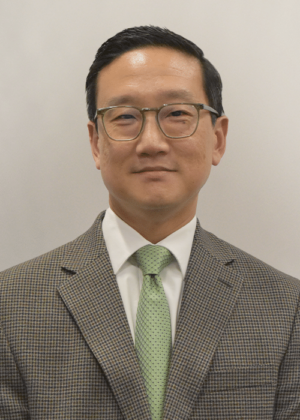
–
Generation180: Tell us about your transportation experience before starting at LAUSD. Why did you choose to work in transportation?
Daniel Kang: I’ve always had a place in the electrical engineering world. I began my career as a Marine working in aviation and then moved to the private sector to work with commercial satellites. Then I transitioned into private sector transportation, primarily focused on freight and moving around coffee, food, and pharmaceuticals. Now, here I am at LAUSD transporting kids, and I am leveraging my background to ensure operational efficiency. Every little thing in my past gave me the experience and perspective to be where I am today.
I have always been interested in the greater good, and not shareholder value — so focusing on the public sector electric fleet transition was a natural fit. At the end of the day, I am serving my local community and the public. I have a direct impact on improving lives and I feel proud to be working on the ESB transition — we are stewards of the world and I want to leave it a better place than I found it.
Generation180: LAUSD has made a commitment to be 100% powered by clean renewable energy by 2040. Tell us about how the district is working to meet that goal in transportation.
Daniel: Over the past three years (despite closures related to COVID), the Transportation Division has been applying for federal and state grants. We were awarded a California Energy Commission (CEC) grant, which enabled us to get our first 10 electric school buses. With these electric buses in daily use, we proved that this works for us and received the necessary buzz and attention to be awarded further state funding. Now, we have 23 electric school buses on the road and a plan to electrify all 1,300 school buses by 2040. We also have plans to electrify our 2,300-vehicle white fleet (sedans, vans, lawnmowers, construction equipment, bulldozers, etc.) across 1,000 school sites.
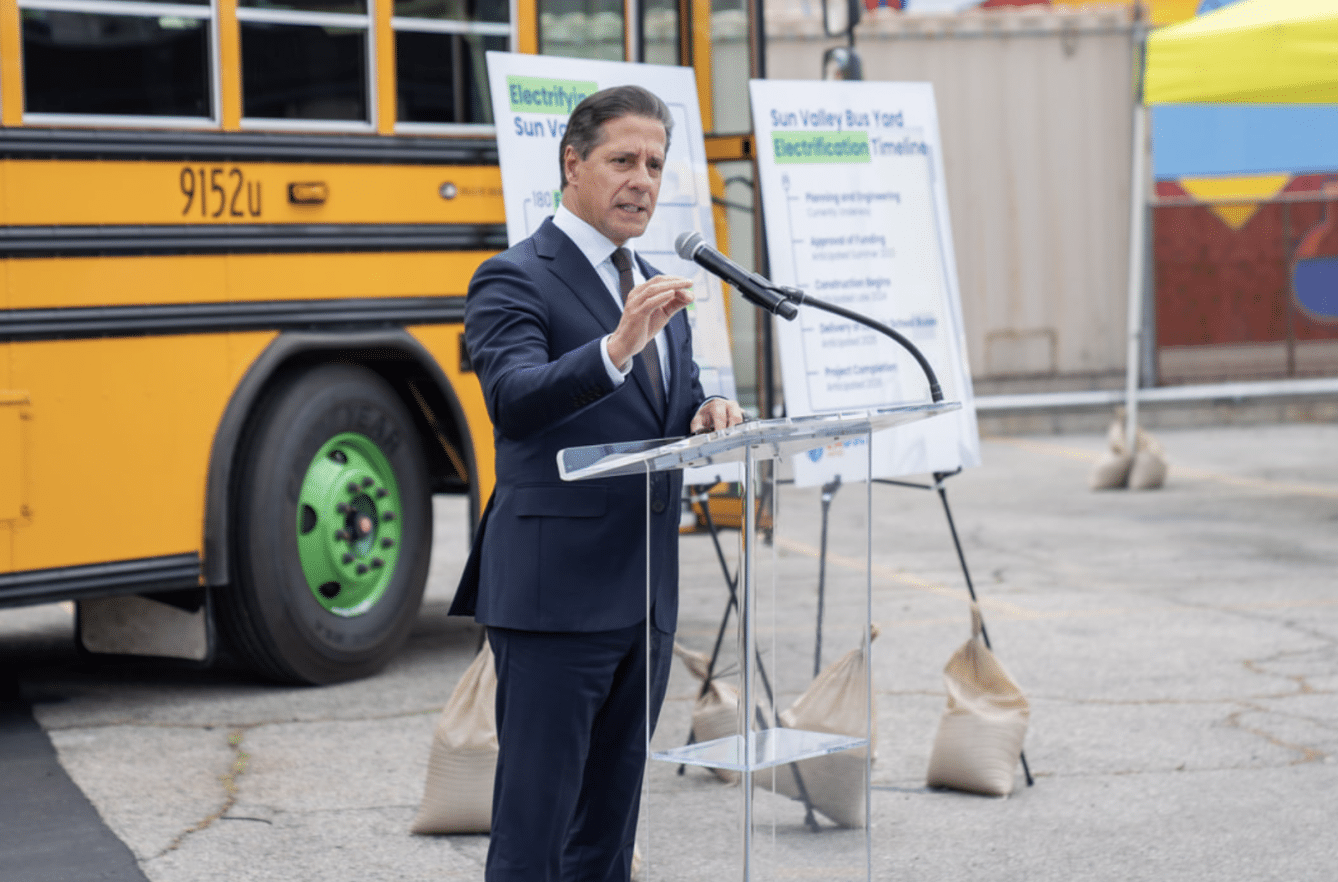
- LAUSD Superintendent Carvalho announcing electrification plan at Sun Valley Bus Depot Credit: LAUSD
Generation180: What challenges have you faced in the transition to electric school buses, and how did you overcome them?
Daniel: Many challenges! It is a new frontier to be working on electric school buses. It has been done by other districts, so I’m partnering with other early pioneers, like Gilbert Rosas at Modesto City Schools, and learning from them. I also keep track of other districts piloting other bus manufacturers and new technology like vehicle-to-grid (V2G).
I’ve learned that if “Plan A” does not work, there are always questions you didn’t ask in advance. I find this exciting. This puzzle is the unknown that I get to discover and learn from. It is energizing to be amongst the trailblazers finding solutions. As a district, we could wait it out and see what other districts are doing, or we could do what we are doing: get out ahead of it, find out what could work, and keep moving the ball forward.
It is energizing to be amongst the trailblazers finding solutions.
Generation180: How has the LAUSD community responded to the electric school buses? Are they already on the road?
Daniel: We have 23 electric buses on the road which have all been well received by the local community, public, parents, and students with appreciation and excitement. They always ask the immediate follow-up question, “So when are you going to be 100% electric?” This puts more pressure on us, but accelerates our desire to work hard to strategically shift to a 100% electric fleet as fast as possible. Even my 12-year-old daughter is asking me when are we ditching diesel. Electric buses are not just cool and a convenience — we need to act because this is our children’s future.
Despite their initial apprehension and a fear of change, our bus drivers fall in love with electric school buses once they make the switch. All the heat, vibration, and noise goes away, so they appreciate the more comfortable and peaceful ride. They also are grateful for clean air they’re breathing in. Zero is a wonderful place to be in terms of pollution.
Zero is a wonderful place to be in terms of pollution.
Generation180: What advice would you give to other school district transportation leaders who are interested in transitioning to electric school buses?
Daniel: I hope other leaders have a district vision and broad support because they should not be in this boat alone. Fleet electrification needs to be shared with facilities, school boards, and engineers. You also need public support. Use it to your advantage to keep the ball moving.
Also, take one bite at a time! The more team members you bring on, the more they can take the bite with you and chip away. This is a long-term project.
Generation180: What gives you hope about our clean energy future?
Daniel: I feel like I’m doing this for my own two daughters. Whether we like it or not, we are stewards of this planet and should not be consumption-based. Let’s do our part. We can lead the way and be an example. We have a district visiting us now from Georgia learning from us, our mistakes, and our pitfalls.
I’m still a Marine serving my local community, and it gives me a sense of fulfillment and joy each day when I wake up to be working on this transition to a clean energy future.
